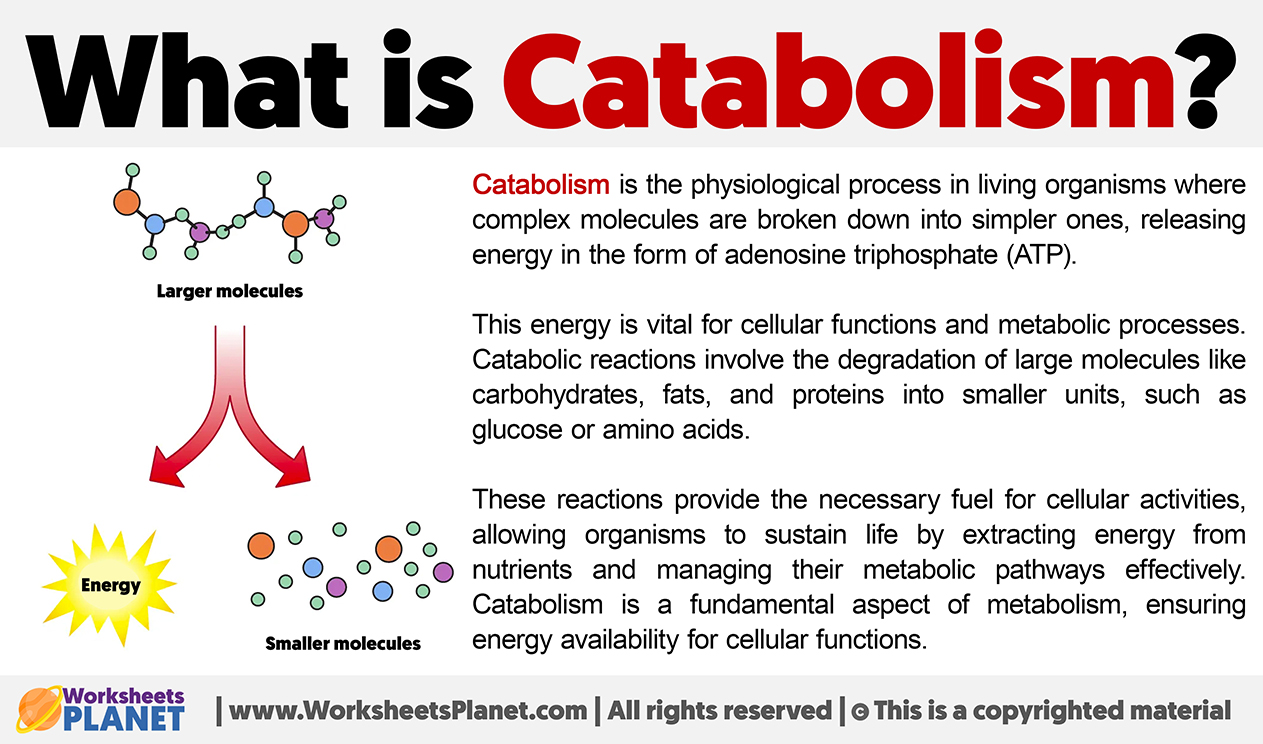Catabolism is the physiological process in living organisms where complex molecules are broken down into simpler ones, releasing energy in the form of adenosine triphosphate (ATP).

This energy is vital for cellular functions and metabolic processes. Catabolic reactions involve the degradation of large molecules like carbohydrates, fats, and proteins into smaller units, such as glucose or amino acids.
These reactions provide the necessary fuel for cellular activities, allowing organisms to sustain life by extracting energy from nutrients and managing their metabolic pathways effectively. Catabolism is a fundamental aspect of metabolism, ensuring energy availability for cellular functions.

